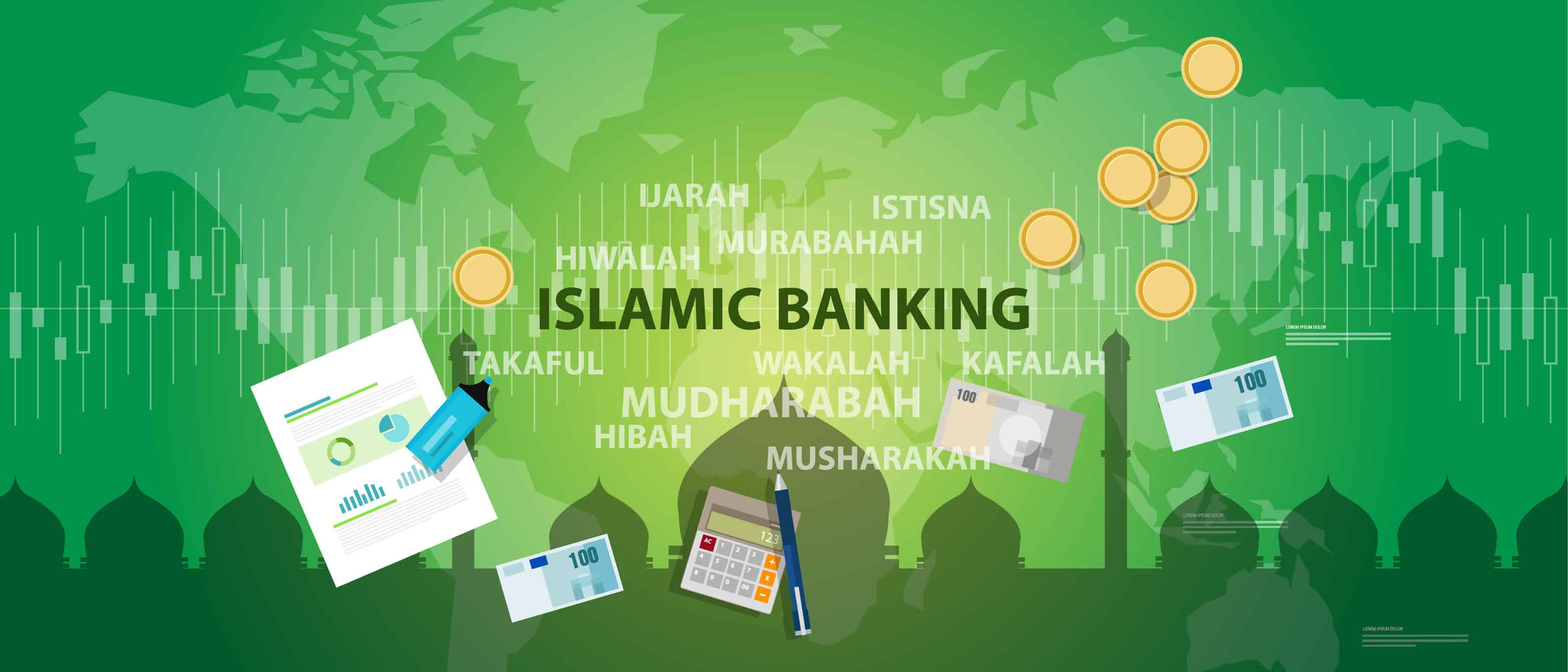The popularity of trading the world’s currencies is a trend that cannot be denied. No matter where you go today on the internet, banner ads proclaim the promise of this modern form of investment management. The community of foreign exchange brokers has grown in the process and has aggressively marketed their services to all parts of the globe. Modifications have been made to accommodate local law and religious principles, including those that guide nearly two billion people of the Islamic faith. So the question remains: is trading Halal?
Roughly one in four, or approximately 1.8 billion people, follow the teachings of the Qur’an, but restrictions within Sharia law prevent the application of interest in many cases or the transacting of business where there is a great deal of uncertainty as to the final result. These restrictions could block any meaningful attempt at managing an investment portfolio. In the modern world, the cost of funds and risk are primary elements of any investment strategy – whether buying and holding for the long term or actively trading over the short term.

The latter strategy obviously includes forex trading. Forex brokers have been wise to follow pronouncements from religious jurists and to offer special accounts tailored to conform to the requirements of Sharia law. Islamic banking can be very complicated, requiring special attention at every turn, but jurists have generally ruled that retail trading in the forex ‘spot market’ is acceptable, as long as special rules are not violated. These rules have their origins in preventing exploitation or the creation of uncertainty when an outcome is unknown.
The debate revolves around two Islamic terms – Halal and Haram. From a trading perspective, books have been written on these basic rules, but the two prominent terms that come into play in the currency markets are ‘Riba’ and ‘Gharar’. A brief explanation of each term follows:
- ‘Riba’ is a concept in Islamic banking that refers to charged interest. Forbidden under Sharia, Islamic religious law, Riba is considered exploitive. Depending on interpretation, Riba may only refer to excessive interest. To others, however, the concept of interest is Riba, and as such is unlawful.
Even though there is a wide spectrum of interpretations on the point at which interest becomes exploitive, many modern scholars believe that interest should be allowed up to the value of inflation to compensate lenders for the time value of their money without creating excessive profit.
- ‘Gharar’ is an Islamic finance term. It describes a hazardous or risky sale, where details about the sale item are uncertain or unknown. Under Islam, Gharar is generally prohibited as there are rules against trades that are perceived to entail excessive risk due to uncertainty. In Islamic, finance there are strict rules against highly uncertain transactions or those that may cause any injustice or deceit against any parties.
In finance, Gharar is regarded within derivative transactions, such as futures, forwards and options, in short selling and in speculation. Under Islamic finance, most derivative contracts are not permitted and are regarded as invalid due to the uncertainty associated with the underlying asset.
Whereas Riba applies to forms of interest that are usurious or exploitive, Gharar restricts aspiring Islamic forex traders to the single medium of retail ‘spot’ forex – the primary access service provided by the multitude of global forex brokers. However, within ‘spot’ forex, the application of net interest differentials to overnight positions or swap fees must be addressed in a special way. Brokers tend to waive these ‘rollover fees’ on Islamic accounts to avoid any conflict, but they may charge a commission and limit the length of the holding period to prevent abuse from their perspective.
Many brokers accommodate these religious dictates for their Islamic clients by creating accounts tailored to these Sharia rules. These special accounts go by many names – Islamic forex account, no-Riba accounts, or Sharia Law accounts. By making best efforts to appeal to all cultures and religious affiliations, the forex industry has displayed a willingness to be all-inclusive.
Usury, Gharar and Maisir
Forex brokers have successfully dealt with any usury or ‘Riba’ implications by setting up so-called interest-free trading accounts, which may still involve some type of commission charge or holding limitation. The next test focuses on the risk and uncertainty of the transaction, the ‘Gharar’, and whether or not it can be construed as gambling, ‘Maisir’, which is forbidden.
Gambling can also arise from creating wealth from what is construed to be a non-productive activity. The debate can become very confusing at this point since a ‘non-productive activity’ is subject to a wide variety of interpretations.
Certainly, traditional forex trading or the trading of options, derivatives, bonds, of futures would all fall under the scope of ‘Haram’, but a Sharia-compliant account will deal with the offending Riba implications. How the trader handles the risk aspect of the transaction determines whether they are trading in a productive manner.

Is Forex Trading Gambling?
Islamic religious authorities publish what is called ‘fatwas’ to delineate the acceptability of a specific activity under strict Sharia law concepts. Fatwas related to the trading of foreign currencies are consistent in their condemnation of traditional forex trading as Haram or forbidden. Interestingly, guidelines have been issued for both consumers and businessmen to deal in the currency markets.
Is forex trading Halal? If your activities are seen as reducing risks, as in hedging currency exposure, then the process is deemed acceptable or Halal. Suppose the trader or treasury manager is exhibiting a level of skill to reduce the uncertainty of his outcome. In that case, he is on safer religious territory and is not seen as merely speculating.
What about short selling? In the stock market, shorting a stock is equivalent to speculating that its value will decline, and to do so, the trader must borrow shares and compensate the broker. As you might expect, this activity is considered Haram. Short selling in foreign exchange, however, is different. No borrowing is taking place, so Riba does not exist. The trader is merely choosing the opposite position, and, by managing his risk, he hopes to make a profit.
Is Forex Trading a Productive Activity?
How do we define forex trading as a ‘productive activity’? To begin with, commercial risk-taking within a business enterprise is an integral part of Islamic finance but creating wealth from pure chance and not a productive activity is the general definition of Maisir. However, dealing in currency markets involves skill in applying a strategy and limiting the impact of risk.
When determining risk and strategy, forex requires market analysis, research, and historic data analysis. As such, the forex trader employs certain risk management principles to mitigate risk and is not merely speculating on price changes in the market.
Islamic Forex Accounts
Is forex trading Halal or Haram? It appears that the verdict is that if you trade forex from a specialised Islamic account, it is Halal or acceptable, but any other method would be Haram or forbidden. Brokers have created interest-free accounts for this purpose and have structured their pricing in such a way as to avoid any semblance of usurious attachments.
Spot forex has a unique way of operating in that, to avoid the actual delivery of your purchased currency, the broker will close and re-open each position automatically around midnight. The broker’s liquidity providers, primarily large banks, assess swap fees in accordance with prevailing interest rate policies on either side of the currency pair. An Islamic account is never assessed for these fees. The broker may make up for them in other commissions or charges, but they may also limit the length of the account’s holding period, as well.
The Best ISLAMIC Forex Brokers
| Broker | Features | Min Deposit | EURUSD Spread | ||
|---|---|---|---|---|---|
 Between 74-89 % of retail investor accounts lose money when trading CFDs
US Clients: No Regulated : Yes Between 74-89 % of retail investor accounts lose money when trading CFDs
US Clients: No Regulated : Yes
|
|
$200 | NDD 0.09 / Standard 0.69 |
Sign
Up
Between 74-89 % of retail investor accounts lose money when trading CFDs
|
|
 Your capital is at risk
US Clients: No Regulated : Yes Your capital is at risk
US Clients: No Regulated : Yes
|
– Flexible leverage up to 500:1 |
$200 | From 0.1 | ||
 Your capital is at risk
US Clients: No Regulated : Yes Your capital is at risk
US Clients: No Regulated : Yes
|
– 40% New Member Bonus
|
$100 | Fixed |
Sign
Up
Europe* CFDs are complex instruments and come with a high risk of losing money rapidly due to leverage. 79% of retail investor accounts lose money when trading CFDs with this provider. You should consider whether you understand how CFDs work and whether you can afford to take the high risk of losing your money.
|
|
 * 82% of retail investor accounts lose money when trading CFDs with this provider. You should consider whether you can afford to take the high risk of losing your money
US Clients: No Regulated : Yes * 82% of retail investor accounts lose money when trading CFDs with this provider. You should consider whether you can afford to take the high risk of losing your money
US Clients: No Regulated : Yes
|
|
100GBP/AUD/EUR/USD | variable |
Sign
Up
* 82% of retail investor accounts lose money when trading CFDs with this provider. You should consider whether you can afford to take the high risk of losing your money
|
|
 Your capital is at risk
US Clients: No Regulated : Yes Your capital is at risk
US Clients: No Regulated : Yes
|
|
$5 | From 0.0 pips | ||
 Your capital is at risk
US Clients: No Regulated : Yes Your capital is at risk
US Clients: No Regulated : Yes
|
– CySEC, FCA, FSCA, SCB Regulated |
$100 | |||
|
|
|||||
Conclusion
Is forex Halal, or is forex Haram? If you live in a Muslim country that operates under Sharia law, you may see that forex trading is listed as an illegal activity. Still, this classification relates to traditional forex trading. As long as you trade within the confines of a broker’s Islamic account provisions, then most Muslim authorities tend to be favourable in their appraisal of the activity.
Do your own research, discuss your findings with your religious elders. While many issues could be open for interpretation, it’s essential to find the answers that feel right for you.